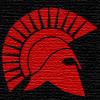-
Posts
410 -
Joined
-
Last visited
-
Days Won
1
Everything posted by greycat
-

Macedonian, Seleucid and Ptolemaic warrior pictures
greycat replied to greycat's topic in General Discussion
Cavalryman of the prodromoi of the early 33os. In the centre is an infantryman in camp dress. Around his arm is wrapped the ephaptis, the military 'wrap..around' cloak, which could be wrapped around the arm to form a makeshift shield. On the right is a Foot Companion in hunting dress; he is an officer or a senior soldier. -
The Greek and Persian Wars 500-323BC
-
The Greek and Persian Wars 500-323BC
-
I agree it could have been Syrian since they didn't go extinct until c.100 BC. The other theory seems to be that it was an Indian Elephant taken from the Syrians.
-
Also the Seleucids/Macedonians/Ptolemies used war elephants. INDIAN WAR ELEPHANTS OF ANTIOCHUS III AND AFRICAN WAR ELEPHANTS OF PTOLEMY IV IN THE BATTLE AT RAPHIA, 217 BC Ptolemaic Egypt and Seleucid Empire
-
"The Carthaginians also used the animals as effective weapons, but as their use became more common, anti-elephant tactics became more sophisticated. At Hannibal’s final defeat at the Battle of Zama in 202 BC, his elephant charge was rendered ineffective when the Roman maniples that simply moved out the way, allowing the elephants to pass through their ranks, to be finished off by light infantry in the rear." http://www.military-history.org/articles/war-culture-animals-of-war.htm
-
Carthaginian War elephants at The Battle of Zama, 202 BC
-
This makes sense to me since Hannibal was Carthaginian and used African and possibly Indian elephants.
-

===[COMMITTED]=== Mauryan War Elephant (and hero elephant)
greycat replied to Mythos_Ruler's topic in Completed Art Tasks
sorry guys... that last picture I posted seems to be an African Elephant... "The bigger and ill-tempered African elephants are distinguished by their larger, fan-shaped ears, flat foreheads and concave backs." -

===[COMMITTED]=== Mauryan War Elephant (and hero elephant)
greycat replied to Mythos_Ruler's topic in Completed Art Tasks
edit -

===[COMMITTED]=== Mauryan War Elephant (and hero elephant)
greycat replied to Mythos_Ruler's topic in Completed Art Tasks
Some info on war elephants http://www.military-history.org/articles/war-culture-animals-of-war.htm -
Greek depiction of Scythion archer
-

What are you listening to?
greycat replied to greycat's topic in Introductions & Off-Topic Discussion
-
I do not believe the Celts were a genetic race. If that were true the Irish would not be Celts. Through DNA we know the people there were originally of Spanish decent and mixed with the Celts from the Gauls.
-
Strabo, Greek geographer, philosopher and historian 64/63 BC – c. AD 24 .) Romans introduced the name Germani, because the Germanic tribes were the authentic Celts (γνησίους Γαλάτας).
-
Cassius Dio in Roman History (c. 220 AD) The Rhine issues from the Celtic Alps, a little outside of Rhaetia, and proceeding westward, bounds Gaul and its inhabitants on the left, and the Germans on the right, and finally empties into the ocean. This river has always down to the present time been considered the boundary, ever since these tribes gained their different names; for very anciently both peoples dwelling on either side of the river were called Celts. .
-
Caesar [The Gallic War, book 6, chapters 11-28] And there was formerly a time when the Gauls excelled the Germans in prowess, and waged war on them offensively, and, on account of the great number of their people and the insufficiency of their land, sent colonies over the Rhine. Accordingly, the Volcae Tectosages seized on those parts of Germany which are the most fruitful and lie around the Hercynian forests (which, I perceive, was known by report to Eratosthenes and some other Greeks, and which they call Orcynia) and settled there. Which nation to this time retains its position in those settlements, and has a very high character for justice and military merit: now also they continue in the same scarcity, indulgence, hardihood, as the Germans, and use the same food and dress; but their proximity to the Province and knowledge of commodities from countries beyond the sea supplies to the Gauls many things tending to luxury as well as civilization. Accustomed by degrees to be overmatched and worsted in many engagements, they do not even compare themselves to the Germans in prowess.
-
Also the Teutoni (singular: Teuton) could have been of Celtic or German origin. They came from Jutland north of Germany During the late 2nd century BC. http://www.merriam-webster.com/dictionary/teuton
-
I guess my main point is that according to Caesar the main proponent of the term German we have Germanic tribes becoming more "Celtic" as with the Belgae. We also have Celtic tribes invading parts of Germany and becoming more "Germanic". So these terms are more a map and not the terrain itself i.m.o
-
It is important to remember though, that that the ancient writers before Caesar called people on both sides of the Rhine as Celts and did not distinguish between the two. Caesar also talks of Celts invading the most fertile pats of Germany and eventually starting to dress and eat the same food as the Germans. Calling them German seems appropriate for gaming purposes though i.m.o.
-
Tiro, some good ideas. The druids would have been exempt from military service though, historically speaking.


